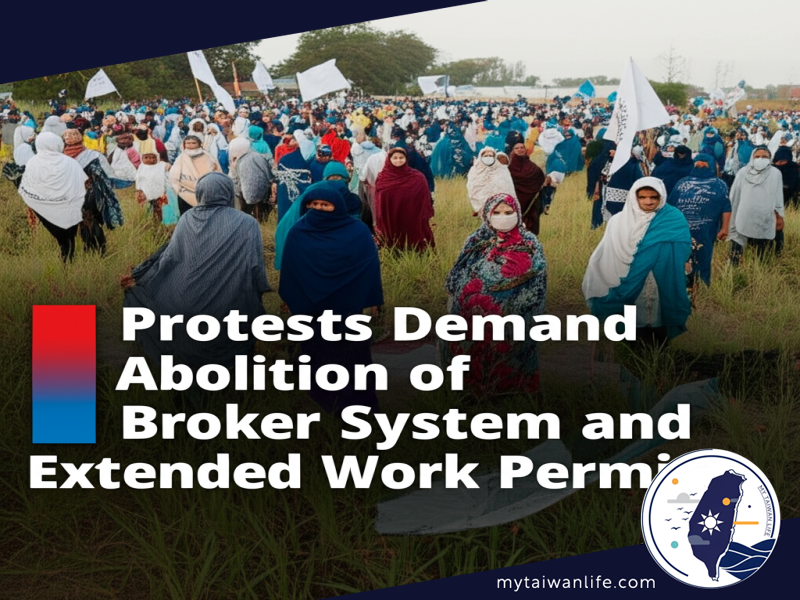Taiwan's Migrant Caregivers Advocate for Fairer Working Conditions
Protests Demand Abolition of Broker System and Extended Work Permits

TAIPEI (Taiwan) – Indonesian caregivers recently staged a protest outside the Ministry of Labor in Taipei, advocating for improved working conditions within Taiwan's care sector. The demonstration, organized by Serikat Buruh Industri Perawatan Taiwan (SBIPT), a union representing Indonesian caregivers working in nursing homes and private residences, highlighted several key demands.
The primary call to action from SBIPT is the removal of the existing limitations on the number of years migrant workers can remain employed in Taiwan. Current regulations, as reported by CNA, restrict caregivers to a typical 12-year term, with a possible extension to 14 years. The protesters argue that any limitations are inherently unfair and that extension requests are sometimes unfairly denied.
Another critical point of contention is the prevalent use of intermediaries, commonly referred to as brokers. SBIPT has voiced strong opposition to the current broker system, citing exploitative and discriminatory practices. The Taiwan International Workers Association (TIWA) reports that the migrant caregiver population in Taiwan has reached 820,000, emphasizing the vital role these workers play in numerous critical industries within Taiwan.
Protesters and activist groups have long condemned the brokerage system, citing instances where private staffing agencies exploit foreign workers who have limited leverage during contract negotiations. Brokers are alleged to charge excessive fees for services like changing employers or modifying work contracts to improve living conditions. Furthermore, some brokers are accused of holding onto workers' passports and important documents, hindering their ability to leave unfavorable employment situations.
SBIPT and TIWA are jointly urging the Ministry of Labor to eliminate the broker system and replace it with a public hiring system designed to connect migrant workers directly with potential employers.
The Ministry of Labor (MOL) responded by welcoming the protesters' views and acknowledging their commitment to protecting the rights and livelihoods of migrants in Taiwan. The MOL pointed to its Direct Hiring Service Center, launched in July 2024, as a measure to facilitate direct connections between migrant workers and employers. The MOL argues that the existing work-year limit is intended to encourage migrants to transition to higher-skilled jobs, which in turn will improve Taiwan's labor force. Furthermore, the MOL says that removing the limit on working years would reduce that incentive.
Other Versions
Los cuidadores inmigrantes de Taiwán abogan por unas condiciones laborales más justas
Les aides-soignants migrants de Taïwan plaident pour des conditions de travail plus équitables
Pengasuh Migran Taiwan Mengadvokasi Kondisi Kerja yang Lebih Adil
I caregiver migranti di Taiwan chiedono condizioni di lavoro più eque
台湾の出稼ぎ介護者、より公平な労働条件を訴える
대만의 이주 간병인, 더 공정한 근무 조건을 위해 옹호하다
Naghahangad ng Mas Makatarungang Kondisyon sa Trabaho ang mga Migranteng Tagapag-alaga sa Taiwan
Сиделки-мигранты Тайваня выступают за более справедливые условия труда
ผู้ดูแลผู้ย้ายถิ่นฐานของไต้หวันเรียกร้องเงื่อนไขการทำงานที่เป็นธรรม
Người chăm sóc di cư tại Đài Loan vận động để có điều kiện làm việc công bằng hơn

